Brexit Britain: Why haven't we left the EU yet?
- Published
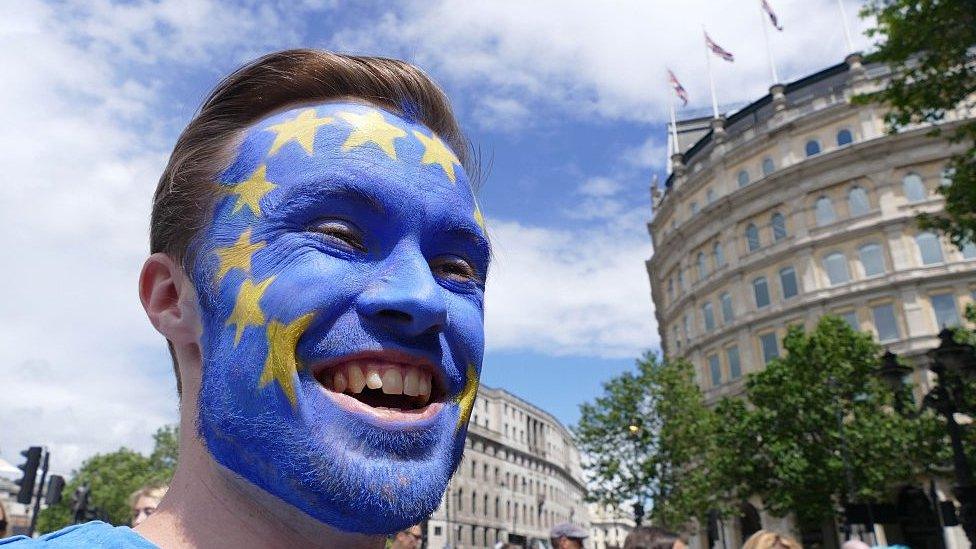
On 23 June the UK held a referendum on whether to remain part of the European Union, or leave.
More than 30 million people voted and although the result was close, Leave won by 52% to 48%.
Since then, new Prime Minister Theresa May has been clear "Brexit means Brexit".
But what exactly does Brexit mean?
Nobody said this would be easy.
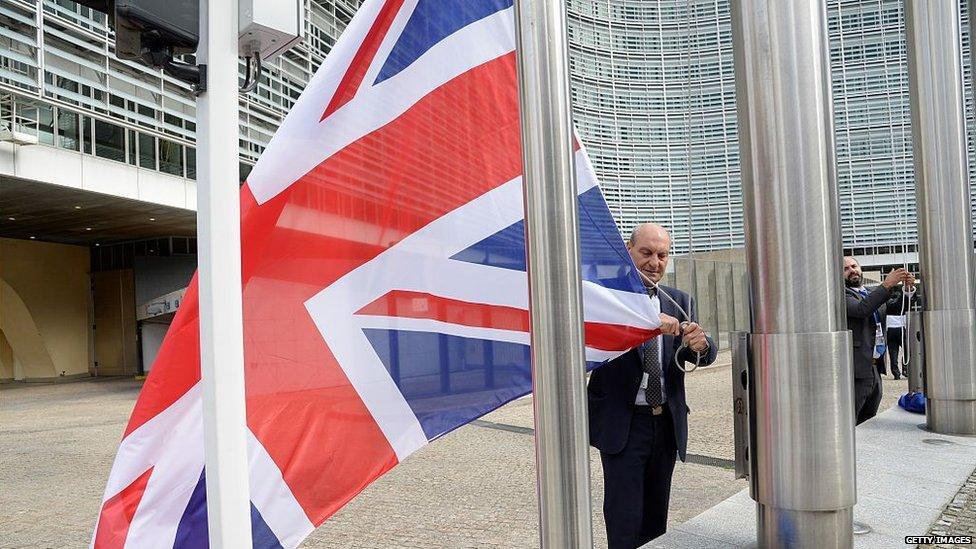
No need to take the flag down just yet, the UK is still a full member of the European Union
Why can't we just leave?
10 weeks after Brexit, are families talking to each other again?
Britain has been a member of the European Union (and the organisations that came before it) for 43 years.
Being in the EU means sticking to rules which cover transport, travel, trade and lots more besides.
Unravelling all the laws and agreements will take time.
The UK is signed up to a treaty which sets out (briefly) how a country should go about leaving - read more on Article 50.
How long will it take to leave?
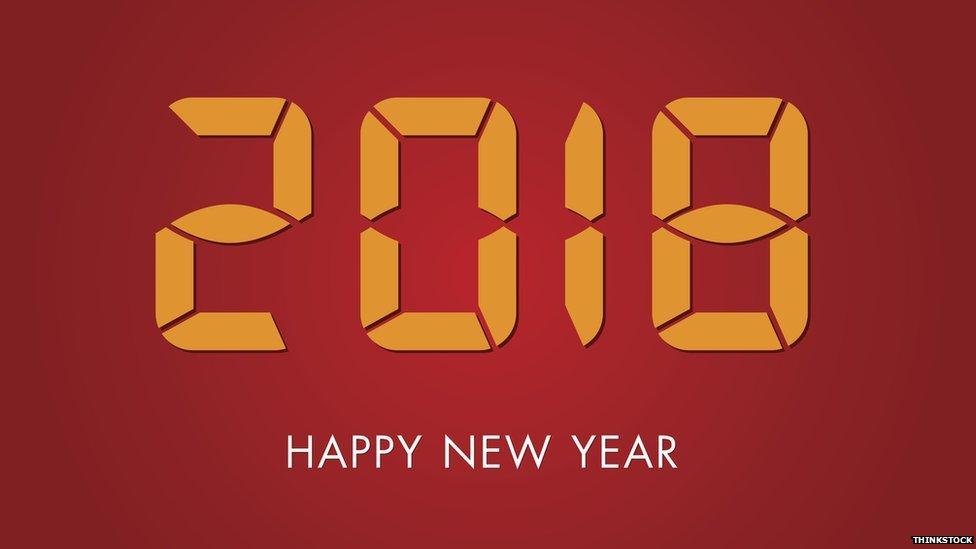
2018 has been suggested as the earliest the UK could leave the EU, but it may well take much longer
Two years at an absolute minimum, possibly much longer.
Article 50 gives the UK and the EU two years to agree the terms of their break-up.
A majority (or possibly all) of the 27 other member states will have to agree to the deal the UK strikes with the EU.
If after two years the negotiations are still going on they can be extended, but only if all 27 member countries agree.
What will happen in the meantime?
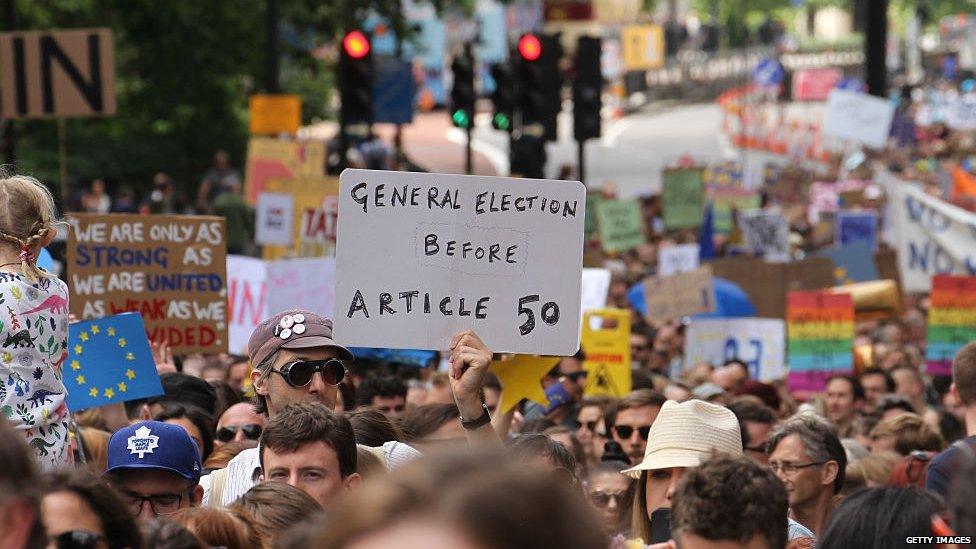
Nice sign, but there is no legal need for a general election to be held before the formal process of the UK leaving the EU begins
To begin with, a lot of talking. So get used to hearing about what kind of a deal the government wants or doesn't want.
We're already getting little bits of information about what the government's bottom line will be on immigration and trade.
But when Article 50 is triggered and the formal process starts - it's time for the real tough talking to begin as the government and EU thrash out a deal.
For now, all European Union laws, freedom of movement and free trade continue to apply to the UK as a member of the EU.
Could Brexit change the make-up of the UK?
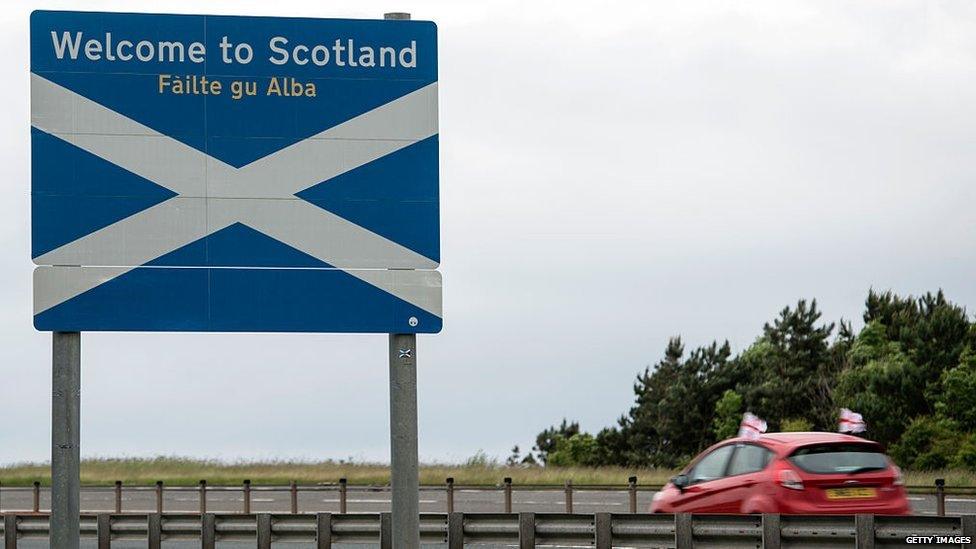
Not directly, the result of the referendum applies to the whole of the UK and the government will negotiate the entire UK's relationship with the EU.
But different parts of the UK voted differently. In Scotland a majority voted to stay in the EU, as did most voters in Northern Ireland. In Wales and England, the majority voted to leave.
Scotland's First Minister Nicola Sturgeon has said a second vote on Scottish independence is "highly likely" after the vote to leave the UK.
The government has said a common travel area which allows people to move freely between the UK and the Republic of Ireland will stay in place.
Is there a chance Brexit won't happen?
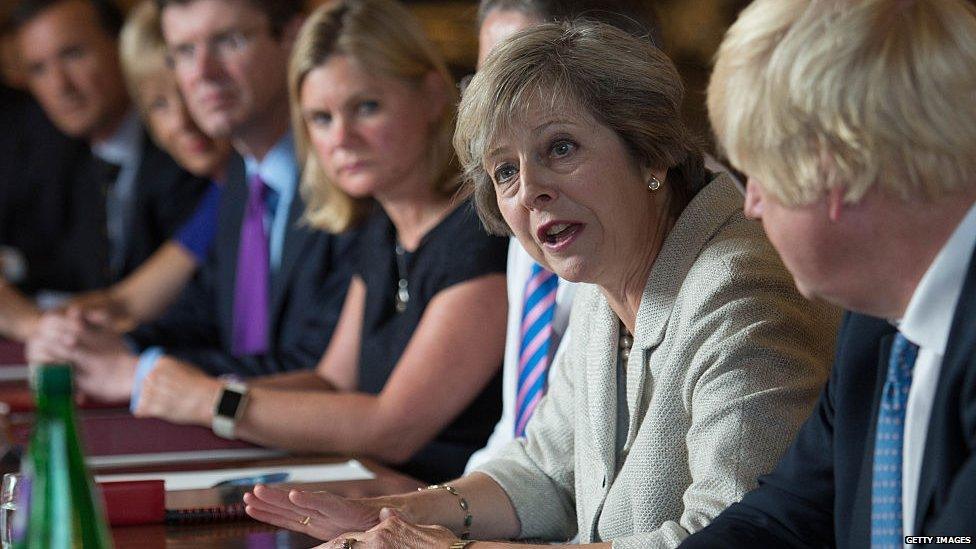
Prime Minister Theresa May has stressed several times that "Brexit means Brexit"
Never say never - but right now the UK is on track to leave the European Union.
There have been calls for a general election or a second referendum to happen before the UK leaves the EU.
But the prime minister doesn't want that - saying there should be no attempts to stay in the EU "by the back door". "We're actually going to deliver on this," she said.
It's unclear whether parliament will get to vote on the process for the UK's withdrawal from the EU - the PM has said only that MPs will be given "a say".
Watch: What is the European Union?, external
Find us on Instagram at BBCNewsbeat, external and follow us on Snapchat, search for bbc_newsbeat